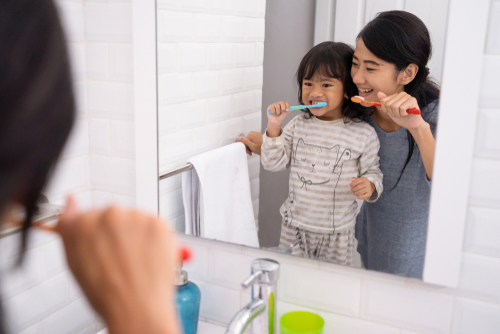
When Should A Child Start Brushing Their Teeth?
June 29, 2021
Does Brushing Of Teeth After Meals Reduce Bad Breath?
September 7, 2021How Old Should My Child Visit The Dentist?
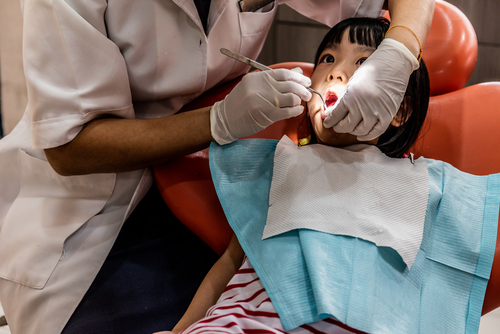
How Old Should My Child Visit The Dentist? The purpose of the first appointment is to acclimate children to the child dentist and to educate parents on how to care for their children’s teeth. This is about the time of the child’s first birthday.
You have a one-year pass till your child turns two if your youngster has graduated from the bottle to the cup and does not snack or drink in the middle of the night.
The typical six-month dental appointment guideline kicks in at this point. Anticipate your dentist to conduct the first series of X-rays when your kid ages 4 and 6 to examine for cavities between teeth.
How Old Should My Child Visit The Dentist?
Table of Contents
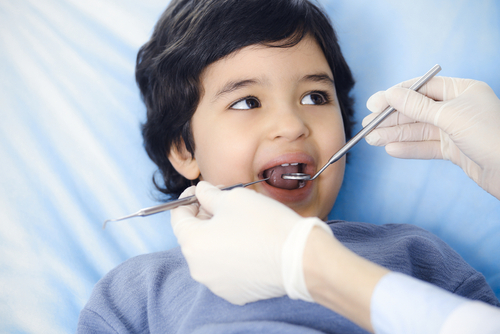
Even by the time they reach their first birthday, you should really have taken them in. In between the ages of 6 and 12, when baby teeth give space to permanent teeth, prevention is the key.
In between the ages of 7 and 9, the child’s dentist will most likely recommend a sealant, a plastic resin that adheres to the chewing surfaces of teeth. Molars that are susceptible to cavities are by far the most prime targets for therapy.
Cavity-causing microorganisms are kept out of the grooves as well as valleys of teeth by the resin. Also, at the age of 7, the child’s dentist will most likely recommend an orthodontic evaluation.
Most children will wait until they are in their early adolescent years to have braces, but because orthodontics is all about changing jaw growth, addressing the skeletal origins of crooked teeth early on can help assure a wonderful smile later on.
A hygienist will do the following at your kid’s dental appointment:
- Inspect and brush your child’s teeth.
- Teach you how to help your child brush his or her teeth correctly.
- Discuss the importance of fluoride in your diet.
- Oral care products would be recommended.
After that, your dentist will join you and your child. They’ll do the following:
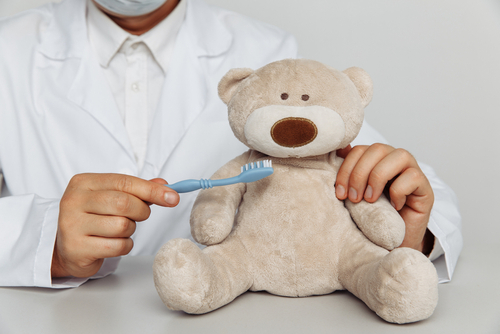
- Inspect your baby’s mouth for just about any signs of tooth decay.
- Share any worries they have about the baby’s oral growth with them.
- Each of your questions about your baby’s teeth but also oral growth will be answered.
6 Points to Note About Dental Care for Small Children
Dental health should be discussed with your child’s paediatrician:

A child’s doctor should address the basics of oral hygiene. At around the age of nine months, several primary care providers can apply a protective fluoride varnish to a kid’s teeth. If you need a reference to an infant-friendly dentistry office, paediatricians are an excellent resource.
It is not a substitute for a dental examination:
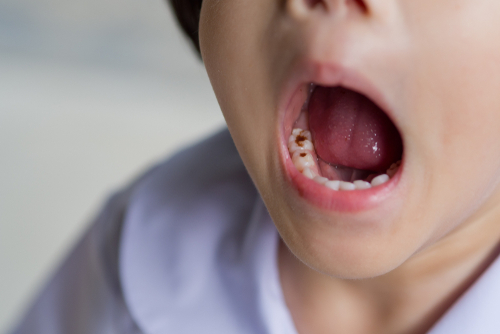
Family doctors can perform a rudimentary oral examination, but their abilities are restricted. A dentist is trained to detect early signs of deterioration and perform preventative therapies to prevent the condition from worsening. Tartar can form at an early age as a result of a child’s diet, believe it or not.
Early dental appointments can help you avoid problems:
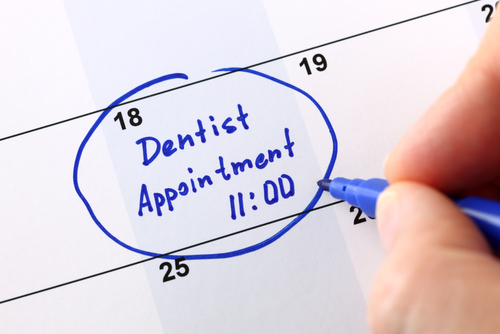
The first baby tooth puts a youngster at risk for rotting and discoloration. Because newborns with dental illness cannot get traditional in-office anesthesia for treatment, it’s critical for a dentist to keep a careful eye on them.
Young children are sent to the operating room with general anesthesia to have a few cavities filled.
Children as young as three years old can sit over an adult’s lap for the exam:
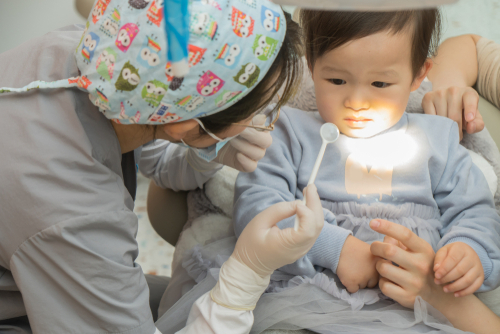
Dentists typically have a lot of positive incentives which also provides a way for one conversation. You can talk about how to maintain good dental health. Kids should go see a dentist regularly, just as they should see their physician for good visits.
It’s critical to take care of your teeth at home:
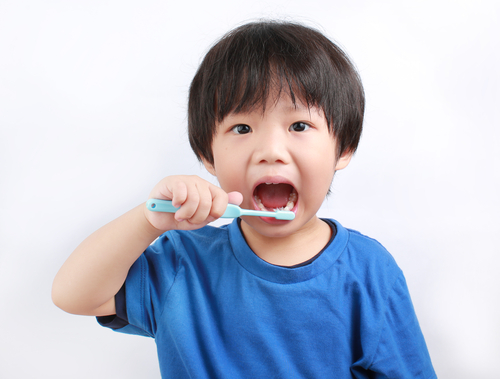
Brushing a child’s teeth should begin as soon as they appear. After six months of age, experts recommend using fluoride toothpaste, emphasizing that a rice-sized amount is sufficient. Be using a pea-sized amount when they can spit.
Sugary beverages should not be consumed by children, nor should they sleep with a bottle in their mouths, as this can promote the growth of cavity-causing germs.
Don’t put off getting your child dental insurance:

As soon as his or her first tooth appears, parents ought to enroll their child in some kind of dental plan. Also, getting an appointment with a particular dentist may take some time.
How Old Should My Child Visit The Dentist? – Conclusion
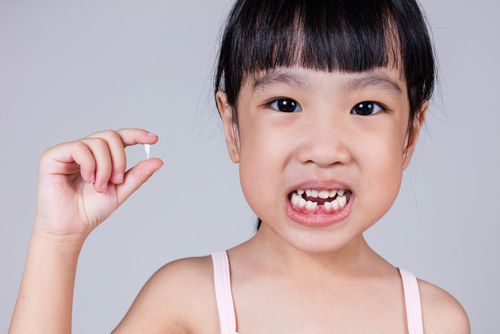
When a child’s baby teeth first appear, then around the time of their first birthday, it’s suggested that they get their first oral health checkup.
While it may seem early, this appointment is necessary to confirm that your child’s teeth are emerging and growing appropriately and that no signs of gum or tooth disease are present.
Baby teeth can appear as early as six months, therefore make sure they have an appointment with a child dentist.
In the end, it’s really the essentials that make the biggest difference in a child’s smile: brushing two times a day, flossing every day, and obtaining regular dental checkups.




